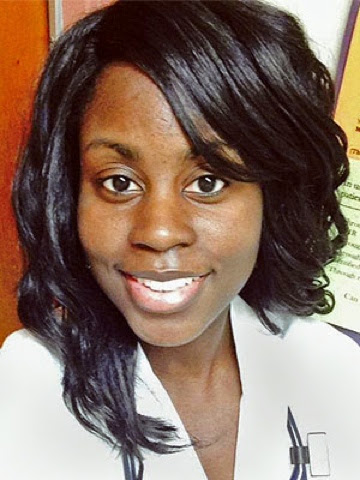Dr. Ngoddy is an optometrist in the metro Atlanta area. To ask her questions, comment below!
1) How and why did you choose optometry?
Interesting story, I attended Xavier University of Louisiana located in New Orleans, LA. This school is known nationwide for its role in getting African American students into doctoral programs. When I started college I was pre-med and had every intention of attending medical school. Alas, life had an entirely different plan for me. I applied my senior year of college for admission into medical school but my MCAT score was low. During my last semester of college I was riding with one of my college roommates discussing our next moves ( basically I was venting she knew her next move), and when I finally paused to take. Breath she said " you should look into optometry, it's mostly non-invasive, has a good quality of life and good pay- plus you will still be a primary care doctor and have patients." This conversation sparked something in me that day and led me to form my plan B. So while I applied again for medical school I also applied for the OAT and applied for optometry school. After being wait listed for medical school (even though my MCAT score improved significantly) I decided God was leading me in a different direction and I decided to follows best decision I've ever made in my life.
2) What is a typical work day?
There are many different modalities in which optometrist can work. I chose to become an independent contractor so I own my own business and lease space from a Chain. Specifically, I lease space from a Sam’s Club located in Morrow, GA. I also provide fill in services for other doctors in the Metro Atlanta area. In the duration of my day I provide several primary care optometric services to patients including diagnosis and treatment of common ocular conditions such as myopia, hyperopia, and presbyopia (basically finding glasses/contact lens prescriptions), as well as notso common conditions like glaucoma. In the event that a patient requires surgical intervention or treatment beyond my scope I refer the patient to a specialist and co-manage the condition.
3)What is the most and least rewarding aspect of your job?
Most rewarding aspect is that the majority of people seeking my services can have a favorable outcome with the prescription of glasses or contact lens. The least rewarding is havingto give someone bad information about their vision. Most ocular emergencies require immediate attention for the best preservation of vision however patients are often slow to act and this can lead to poor prognosis.
4)What educational requirements are necessary prior to applying to optometry school?
Undergraduate degrees and the fulfillment of course requirements set forth by the optometry school you are applying to. Students also have to have taken and done well on the OAT for entrance.
5) Would you choose this career if you could make this decision again
ABSOLUTELY!
6)What do you wish you knew about optometry before you started that you know now?
That many optometrist are business owners. If I had prior knowledge I would have sought out business classes in undergrad to better prepare me for that possibility.
7)Are there any trends in your career that concern you? What is the future of this field?
There is a very promising future for optometry, especially as many optometrists move towards more medical models in their practice.
8)Career and Life Balance,is it possible?
In optometry you can work as much as you want and as little as you want depending on how you decide to practice. You can do anything from fill in once a month to full time in a practice or hospital setting. In fact many people join the profession for the great quality of life .
9) Average salary?
90,000-110,000 I think
10) Any websites you recommend for further information?
http://www.nationaloptometricassociation.com
http://www.aoa.org/











